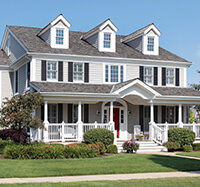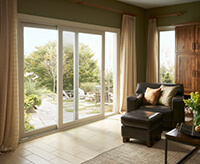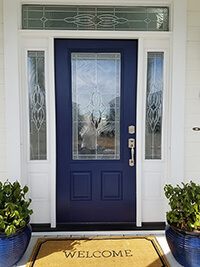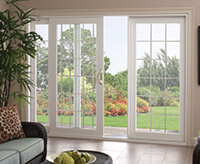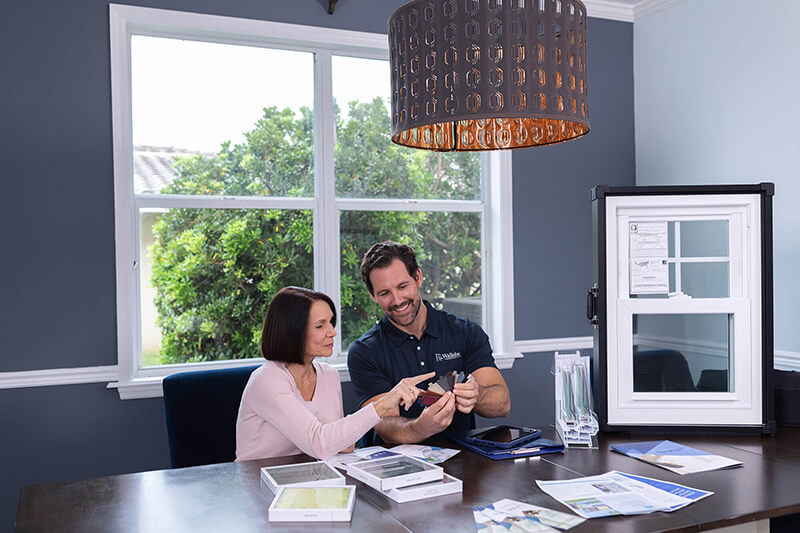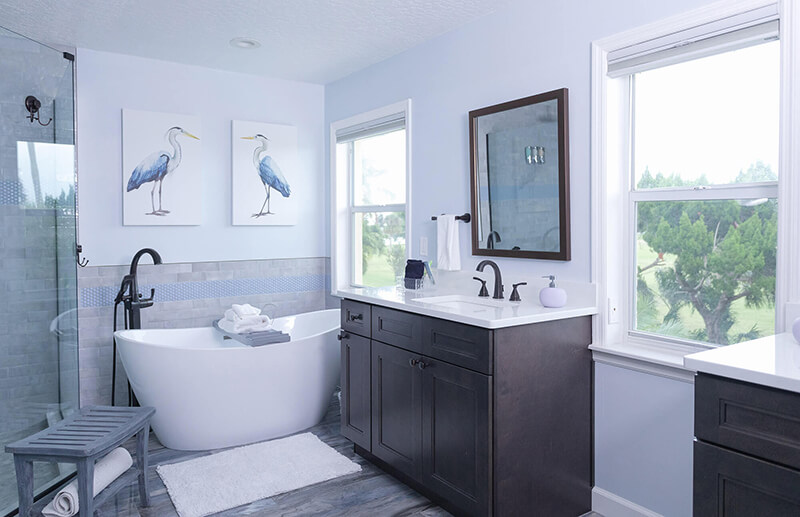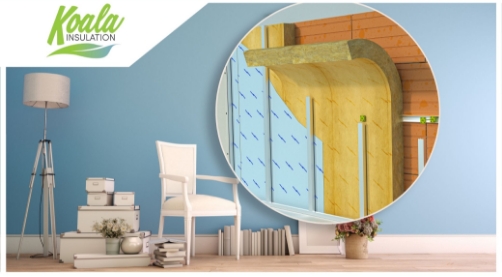
What Makes Replacement Windows EnergyEfficient
When improving your home's energy efficiency, replacing or updating your windows is one of the best things you can do. Energy-efficient windows are a great way to enhance your home's comfort all year round while helping you save on utility costs.
According to Energy Saver, heat gain and loss through windows account for 25%-30% of residential heating and cooling energy use. Energy-efficient windows ensure a tight building envelope—the barrier between your home's conditioned and unconditioned space.
A tight building envelope helps prevent air leaks, regulates indoor air quality, and improves your home's energy efficiency. Understanding what makes replacement windows energy efficient can help you choose the best option for your home. Read on to learn more.
ENERGY STAR® Windows
When selecting energy-efficient windows, look for the ENERGY STAR label. Replacement windows that have earned the ENERGY STAR meet strict energy efficiency guidelines set by the U.S. Department of Energy or the Environmental Protection Agency. They help homeowners reduce their annual heating and cooling costs by an average of 12% compared to standard single-pane windows.
To open the window, there is usually a mechanism with a crank that you turn to extend the window. Though you can simply push out some casement windows and a tensioning device will hold the window open.
To earn the ENERGY STAR label, windows must meet specific criteria related to:
- U-factor
- Solar heat gain coefficient (SHGC)
- Air leakage
- Visual transmittance
U-Factor
The U-factor is the rate at which a window conducts non-solar heat flow. It measures how well a product prevents heat from escaping a home or building. The lower the U- factor, the more energy efficient the window is. Replacement windows with a low U- factor are better at keeping the heat in during the winter and cooler air inside during the summer.
Solar Heat Gain Coefficient (SHGC)
The SHGC is the fraction of solar radiation that enters through a window and is absorbed and subsequently released as heat inside a home or building. Replacement windows with a low SHGC allow less solar heat to enter through the window, making them ideal for homes or buildings in hot climates.
Air Leakage
Air leakage is the rate of air movement around a window or door. Replacement windows with a low air leakage rate are better at keeping homes or buildings draft-free and comfortable.
Visual Transmittance
Visual transmittance (VT) is the amount of visible light that passes through a window. Replacement windows with a high VT let in more natural light, which can help reduce the need for artificial lighting and lower energy costs.
An energy performance label from the National Fenestration Rating Council (NFRC) will also help you compare the energy efficiency of replacement windows to find the most efficient option for your home. Check the energy performance ratings here to understand how to read the label, energy use, and cost-savings information.
6 Things to Consider If You Want Energy-Efficient Windows
To enjoy the benefits of energy-efficient replacement windows, it's essential to take the time to select the right product for your home. Here are six things to keep in mind:
1. Climate and Geographical Location
Your home's climate and geographical location affect how energy-efficient your windows need to be. If you live in a cold climate, heating your home during winter will contribute the most to your energy use.
Replacement windows with a low U-factor can help keep heat inside your home, saving you money on your energy bills. However, if you live in a hot climate, installing windows with a low SHGC can help keep your home cooler by blocking out the sun's heat. This eliminates the need to power on the air conditioner as often.
2. Energy Efficiency Labels and Certifications
Before settling on a replacement window, check for energy efficiency labels and certifications. Windows with ENERGY STAR and NFRC labels have been certified by independent organizations to meet specific energy efficiency criteria and performance standards.
3. Window Frame Material
The type of frame material you select for your replacement windows will also affect their overall energy efficiency. Replacement windows with wood, vinyl, or fiberglass frames are typically more energy-efficient than those with metal frames. Multi-chambered vinyl and fiberglass frames are also more energy-efficient due to their impressive insulating properties.
4. Glass Type
Choosing the right glass optimized for your climate can also help improve a window's energy efficiency. Double- or triple-pane replacement windows with argon or krypton gas between the panes of glass can help slow thermal transfer.
These gases are less conductive than the air between standard windows, which means heat has a more difficult time escaping through them. Windows with low-e coatings are also a good option as they help reflect heat back into your home during winter, deflect the sun's heat during summer, and block harmful UV rays.
5. The Orientation and Placement of Your Windows
How and where you place your replacement windows can also affect how energy- efficient they are. For example, south-facing windows tend to let in more heat during winter, while east- and west-facing windows are more susceptible to solar heat gain.
As such, you may opt for replacement windows with the highest SHGC and lowest U- factor rating for south-facing windows in cold climates. For east-facing windows, look for windows with a lower SHGC to help keep the heat out during summer. The key is to strike a balance that provides adequate ventilation and solar heat gain during the colder months.
6. Installation and Maintenance
Finally, proper window installation and regular maintenance are critical to ensuring your windows remain energy-efficient. Poorly installed windows can lead to drafts and air leaks, negating any energy-efficiency gains the windows provide.
A properly installed window will keep your home comfortable year-round and help you realize significant long-term energy savings. Hiring an experienced and certified window installer is the best way to ensure your windows are installed correctly.
Once installed, clean your windows regularly and repair any damage promptly to maintain energy efficiency.
Once installed, clean your windows regularly and repair any damage promptly to maintain energy efficiency.
At Wallaby Windows, we are proud to offer our clients a wide selection of high-quality and stylish energy-efficient replacement windows to maximize their home's comfort and energy efficiency.
Our team of experienced and certified window installers will help you select the best windows for your home and budget and ensure they are installed correctly for optimal performance. Contact us today at 888-909-9050 to get an estimate for your replacement windows, and let's improve your home's energy efficiency.
https://www.pexels.com/photo/anonymous-man-installing-window-in-room-5691503/
